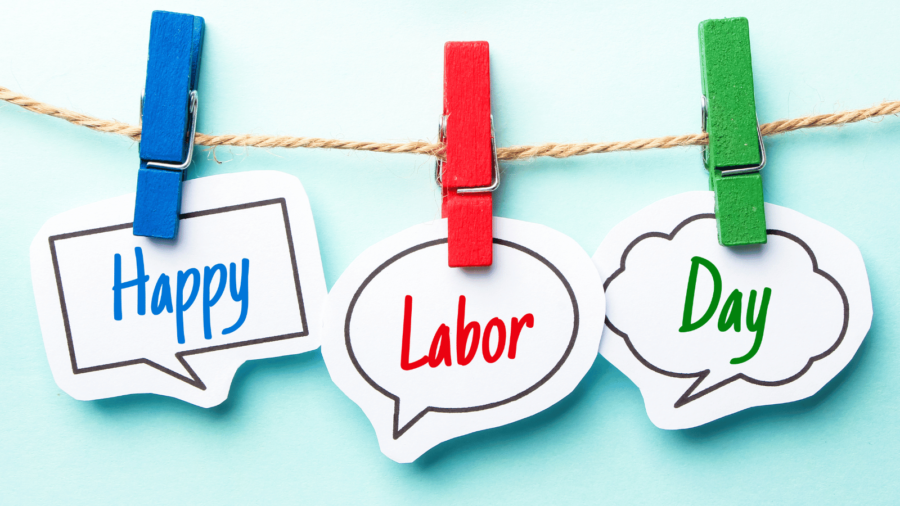Labor Day
Introduction:
Labor Day, celebrated in many countries across the globe, stands as a testament to the dedication, perseverance, and contributions of the working class. It’s more than just a day off; it’s a recognition of the invaluable role each individual plays in shaping our societies and economies. In this blog, we delve into the history of Labor Day, its significance, and why it’s crucial to honor and respect the labor force.
The Historical Context:
The roots of Labor Day trace back to the late 19th century when the Industrial Revolution was in full swing. The conditions for the working class during this period were often deplorable, with long hours, low wages, and unsafe working environments being the norm. Labor unions emerged as a response to these injustices, advocating for better working conditions, fair wages, and workers’ rights.
In the United States, the first Labor Day celebration took place on September 5, 1882, in New York City, organized by the Central Labor Union. It was intended as a day to honor the American labor movement and the contributions of workers to the prosperity and well-being of the nation. Over time, the observance of Labor Day spread to other states and eventually became a federal holiday, celebrated on the first Monday of September each year.
The Significance of Labor Day:
Labor Day holds immense significance as it serves as a reminder of the progress made in the realm of workers’ rights and the ongoing struggle for social and economic justice. It’s a day to reflect on the sacrifices made by those who came before us and to renew our commitment to building a more equitable society.
At its core, Labor Day is about recognizing the dignity of labor. It’s about acknowledging that every job, no matter how big or small, contributes to the functioning of society. From the factory worker to the teacher, from the nurse to the farmer, each individual plays a vital role in shaping our communities and driving progress forward.
Respecting Each Other’s Roles:
In today’s interconnected world, it’s more important than ever to recognize and respect each other’s roles in society. Every person, regardless of their profession or social status, deserves to be treated with dignity and respect. Whether you’re a CEO or a janitor, a doctor or a cashier, your work matters, and it deserves recognition.
In an organization, every role is interconnected, much like the gears in a well-oiled machine. Each department relies on the other to function smoothly, and every individual contributes to the overall success of the enterprise. By recognizing and appreciating the contributions of all team members, organizations can foster a culture of inclusivity, collaboration, and mutual respect.

Working Towards Personal and Professional Growth:
Labor Day is also a time to reflect on our own personal and professional growth. It’s an opportunity to assess our goals, aspirations, and achievements, and to chart a course for the future. Whether you’re striving for a promotion, starting your own business, or pursuing further education, Labor Day serves as a reminder that hard work, dedication, and perseverance can lead to success.
Moreover, Labor Day is a time to advocate for policies that support workers’ rights and promote economic opportunity for all. This includes fair wages, safe working conditions, access to healthcare and education, and protections against discrimination and exploitation. By advocating for these issues, we can ensure that future generations have the opportunity to thrive and succeed.
Celebrating Labor Day:
As we celebrate Labor Day, let us take a moment to express gratitude for the countless individuals who toil day in and day out to make our world a better place. Whether you’re spending the day with family and friends, attending a parade or picnic, or simply enjoying a well-deserved break, remember the sacrifices made by those who came before us and the challenges that still lie ahead.
Women’s Unpaid Labor :
When discussing labor and the contributions of individuals to society, it’s essential to recognize the significant role that women play, both in the workforce and at home. Historically, women have often been overlooked or undervalued for their labor, especially when it comes to unpaid work within the household.
Throughout history, women have been the backbone of families and communities, taking on a myriad of responsibilities that often go unrecognized and unappreciated. From caring for children and elderly relatives to managing household chores and providing emotional support, women perform essential labor that is crucial for the functioning of society.
In many parts of the world, women still bear the brunt of domestic responsibilities, often juggling multiple roles and duties while also participating in the formal workforce. This unpaid labor, often referred to as “care work,” is invaluable yet frequently overlooked in economic calculations and policy discussions.
Moreover, women have made significant strides in the formal workforce, breaking barriers and shattering stereotypes in traditionally male-dominated fields. From science and technology to business and politics, women have proven time and again their capabilities and talents, contributing to innovation, growth, and progress in diverse industries.
However, despite these advancements, gender disparities persist in the labor force, with women facing wage gaps, glass ceilings, and systemic discrimination. Additionally, women continue to bear a disproportionate burden of unpaid labor, often sacrificing their own career advancement and personal fulfillment for the sake of family and household responsibilities.
As we celebrate Labor Day, it’s crucial to acknowledge and honor the contributions of women to the workforce and society as a whole. This includes recognizing the value of unpaid labor performed by women in the home and advocating for policies that promote gender equality, such as paid family leave, affordable childcare, and equal pay for equal work.
By acknowledging and valuing the labor of women, we can create a more inclusive and equitable society where all individuals have the opportunity to thrive and succeed, both at home and in the workplace. So, this Labor Day, let’s celebrate the invaluable contributions of women to labor and society, and recommit ourselves to building a future where every person is treated with dignity, respect, and equality.
In conclusion, Labor Day is a time to honor the past, celebrate the present, and envision a brighter future for workers around the world. It’s a reminder that the labor movement is as relevant today as it was over a century ago and that by working together, we can create a more just, equitable, and prosperous society for all. So, this Labor Day, let’s come together to celebrate the dignity of labor and the indomitable spirit of the working class.




